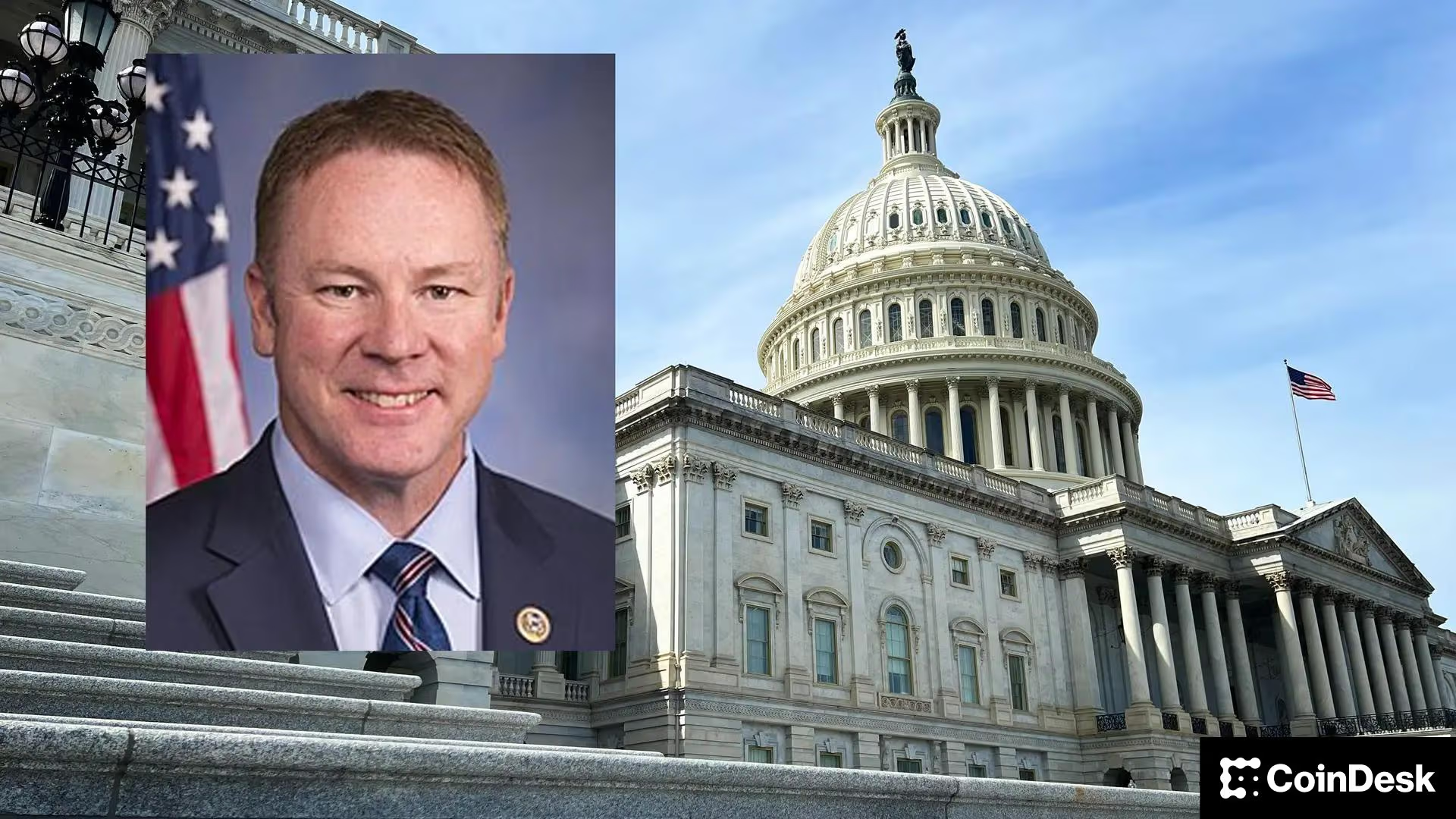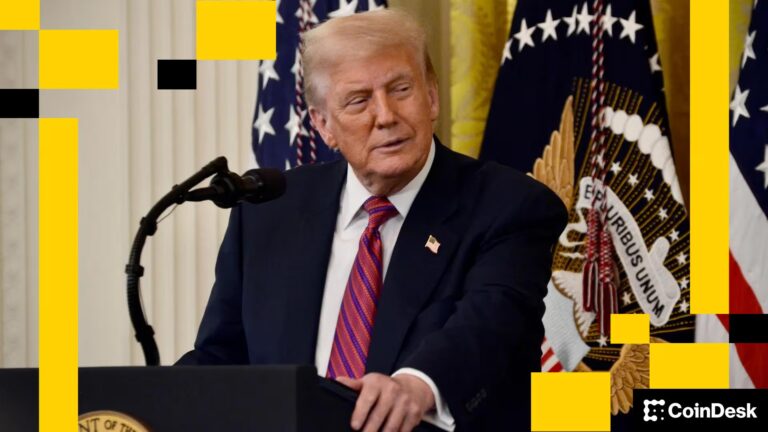Ohio Representative proposes Bitcoin tax payment legislation.
U.S. House Bill Seeks BTC Federal Tax Payments While Bolstering U.S. Reserve
Congressman Warren Davidson presented a law that permits bitcoin tax payments without capital gains to strengthen the U.S. Strategic Bitcoin Reserve.
By Olivier Acuna|Edited by Jesse HamiltonUpdated Nov 21, 2025, 4:36 p.m. Published Nov 21, 2025, 3:53 p.m.

What to know:
- Rep. Warren Davidson unveiled the Bitcoin for America Act, enabling federal tax payments in bitcoin without capital gains responsibilities.
- The legislation is intended to channel BTC tax payments toward the suggested U.S. Strategic Bitcoin Reserve.
- President Trump's decree sanctioned the reserve, though its instantiation probably requires further congressional measures.
A congressional representative, who has been a longtime Republican supporter of the crypto space, introduced a proposition to authorize individuals and enterprises to remit taxes in bitcoin without causing capital gains implications, while also directing those funds toward the U.S. Strategic Bitcoin Reserve, thus furnishing a fresh funding avenue for the federal crypto storage that is yet to be formed.
Rep. Warren Davidson (R-Ohio) put forth the Bitcoin for America Act to empower U.S. citizens to settle federal taxes using bitcoin, according to his official webpage on Thursday.
Davidson, a bitcoin champion since 2012, communicated that the law is geared toward enhancing the country’s economic strength and positioning it as a forerunner in the worldwide digital asset domain.
“The Bitcoin for America Act signifies a notable stride toward updating our monetary infrastructures and adopting the ingenuity that a multitude of Americans are already employing daily,” he articulated in a declaration.
“By affording taxpayers the opportunity to discharge federal taxes in bitcoin and allocating the revenues to the Strategic Bitcoin Reserve, the nation stands to gain from possessing a concrete asset that appreciates in worth over a period — in contrast to the U.S. dollar, which has consistently depreciated under inflationary burdens,” he stated.
He conveyed in a discussion with the Bitcoin Policy Institute, a research body backing BTC, that he regrets Congress disregarded his counsel back in 2016 when BTC traded around $500 to $600.
“Consider the advantage concerning what it could achieve for a nation bearing a $38 trillion debt,” the congressman noted.
"The Bitcoin for America Act demonstrates that a strategic Bitcoin reserve doesn’t require a command from the top,” said Conner Brown, Head of Strategy at BPI. “By allowing Americans to voluntarily contribute bitcoin through their tax payments, it creates the first truly democratic, market-driven model for national bitcoin accumulation.”
President Donald Trump’s Strategic Bitcoin Reserve materialized as a prospect in early March, when he endorsed an executive directive authorizing its inception.
Nevertheless, those laboring on the initiative within the White House and Treasury Department have not yet completed the definitive step of establishing the reserve, asserting that it likely necessitates congressional participation.
When the president requested the reserve, he disheartened numerous proponents within the crypto realm when he expressed that it would not utilize taxpayer funds for its capitalization. Davidson's bill could potentially contradict that principle, albeit it anticipates taxpayers willingly placing their assets into the fund (and benefiting from the capital-gains exception on that sum).
Arkham’s U.S. federal reserve tracker is presently offline, but based on the most recent approximations, the White House’s crypto storage holds an estimated 198,012 BTC, assessed at roughly $17 billion.
Davidson's bill, which states it presumes bitcoin "is expected to appreciate due to its scarcity and growing adoption," emerges amid a substantial decline in the token's market worth.
A House proposition presented at this juncture within the congressional session might serve more as a topic for deliberation in subsequent dialogues concerning various crypto tax conditions that industry advocates aspire to incorporate into legislative instruments. Concurrently, the majority of lobbyist focus is directed toward the continuous Senate endeavors on the crypto market framework bill.



